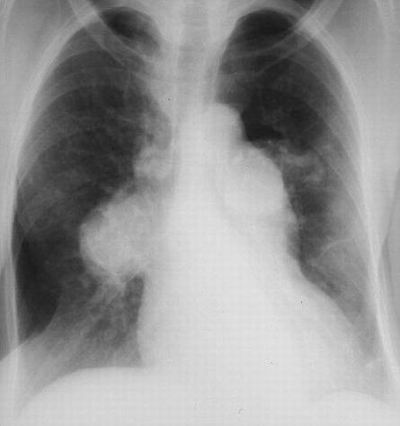Pulmonary Hypertension Information
Click here to scroll to the list of available medications ↓
While hypertension (high blood pressure) is a relatively common disease, pulmonary hypertension is remarkably rare in comparison. Pulmonary hypertension is the constriction of blood vessels which is limited to the lungs. Pulmonary hypertension is considered a progressive disease with a high risk of mortal consequences. Pulmonary hypertension causes a progressive weakening of the heart which can lead to heart failure and death. While there is no cure for this disease, there are effective treatment options for many patients.
Many patients live with pulmonary hypertension for a period of months or years in a completely asymptomatic state. However, once symptoms develop they may include a racing heart, palpitations of the heart, a blue tint to the fingertips and toe nails and sometimes throughout the entire hand or foot, blueness of the lips, chest pressure, chest pain, edema (swelling) of the ankles, legs, and abdomen, fatigue, dizziness, fainting, and a progressive shortness of breath.
The scientific cause of pulmonary hypertension is an alteration in the cells of the lining of the blood vessels in the lungs. Sometimes there is no apparent reason for this, which physicians call primary pulmonary hypertension. This means they don’t know why the change happened and there seems to be no relevant underlying cause. However, drug use, especially cocaine use and the use of diet medications containing fen phen are two of the greatest causes relating to pulmonary hypertension. Chronic liver disease, lupus, sickle cell anemia, AIDS, and scleroderma can also cause pulmonary hypertension.

Other diseases can cause pulmonary hypertension. High risk diseases include blood clots, chronic obstructive pulmonary diseases such as severe asthma or emphysema, sleep apnea, congenital heart disease, chronic altitude illness, lung diseases, and left ventricle heart failure.
Just about anyone can develop pulmonary hypertension. However, the disease is more likely to strike women than men. Older adults are at a higher risk for secondary pulmonary hypertension and younger adults are more likely to develop the primary form.
A chest x-ray or an echocardiogram can often pick up pulmonary hypertension in the early stages. However, very few cases are ever diagnosed in the early stages and are often not diagnosed until after the onset of symptoms. Shortness of breath is usually the first symptom which is not taken very seriously in the medical community when presented in a healthy adult. Mild asthma and anxiety and stress can often explain shortness of breath, and if the adult is a smoker most physicians don’t look farther than the end of a cigarette. As symptoms continue to worsen, tests such as pulmonary function tests, perfusion lung scans, CT scans, MRIs, and right heart catheterization are often used to confirm what a chest x-ray often signifies. Unfortunately these tests are not usually given to healthy adults until after symptoms become life affecting.
Fluid in the lungs, blood clots, and enlarged right ventricle of the heart are the most common and most serious complications related to pulmonary hypertension. These complications are life threatening and can often result in serious health complications including death. While there are treatment options available for these complications, by the time a patient reaches these complications the heart is significantly weakened and is likely to give out under the chronic stress.
Treatment options for pulmonary hypertension include medications which target the blood vessels in the heart with the hopes of widening and easing the strain the narrowed blood vessels cause. Medications such as high dose calcium channel blockers, blood vessel dilators, endothelin receptor agents, diuretics, anticoagulants, oxygen, and organ replacement can all treat pulmonary hypertension, some more effectively than others.
Patients with pulmonary hypertension are committing suicide if they smoke cigarettes. Patients should also be advised that they need to be sure to get ample rest, refrain from traveling in higher altitudes, avoid pregnancy, eat a healthy diet and maintain a healthy weight, and maintain a low stress lifestyle in order to contribute to their own state of health.